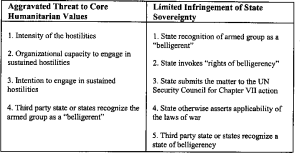In the 21st century, warfare has transcended traditional battlefields to enter the digital realm. Cyber warfare, involving the use of technology to launch attacks on nations’ information systems, has emerged as a critical aspect of modern military strategy. This 1000-word article explores the concept of cyber warfare, its implications for national security, and the evolving strategies to address this new form of conflict.
Contents
Introduction
Cyber warfare represents a paradigm shift in how conflicts are waged. Unlike conventional warfare, it doesn’t rely on physical force but on digital tactics to disrupt, degrade, or destroy a nation’s ability to function effectively. As technology becomes increasingly integral to government, military, and civilian operations, the strategic significance of cyber warfare continues to escalate.
Understanding Cyber Warfare
Definition and Scope
Cyber warfare encompasses a range of actions by a nation-state or international organization to attack and attempt to damage another nation’s computers or information networks. This can involve the use of malicious software (malware), hacking, and other cyber tactics to disrupt critical infrastructure, steal sensitive information, or propagate propaganda.
The Asymmetrical Nature of Cyber Warfare
One of the defining characteristics of cyber warfare is its asymmetry. It levels the playing field between nations, as even smaller countries or non-state actors with limited physical military capabilities can launch potent cyberattacks.
The Evolution of Cyber Warfare
Historical Context
While the concept of using digital means for espionage and sabotage is not new, the last two decades have seen a significant escalation in cyber warfare tactics. High-profile incidents, such as the Stuxnet virus attack on Iranian nuclear facilities and Russian interference in the 2016 U.S. presidential election, have highlighted its growing impact.
Development of Cyber Military Units
In response to these emerging threats, many nations have developed specialized military units focused on cyber warfare. These units are tasked with both offensive and defensive cyber operations.
Cyber Warfare Tactics and Techniques
Hacking and Data Breaches
Hacking, a primary tool in cyber warfare, involves unauthorized intrusion into computer systems to steal data, disrupt operations, or plant malware.
Distributed Denial of Service (DDoS) Attacks
DDoS attacks overload servers or networks with a flood of internet traffic, rendering them inoperable and denying service to legitimate users.
Propaganda and Information Warfare
Cyber warfare also includes the use of digital platforms to spread propaganda or disinformation, a tactic that can destabilize societies and influence public opinion.
Implications for National Security
Threat to Critical Infrastructure
Cyberattacks can target critical infrastructure such as power grids, water supplies, and communication networks, posing significant risks to national security and civilian safety.
Economic Impact
Cyber warfare can have severe economic impacts, including the theft of intellectual property, disruption of financial systems, and costs associated with cybersecurity defense and recovery.
Cyberattacks can undermine public trust in government institutions, influence political processes, and exacerbate social divisions.
Defensive Strategies in Cyber Warfare
Strengthening Cybersecurity Defenses
Developing robust cybersecurity infrastructure is fundamental to defending against cyberattacks. This includes regular software updates, secure data encryption, and rigorous cybersecurity protocols.
Cyber Intelligence and Surveillance
Gathering intelligence on potential cyber threats and continuously monitoring networks for suspicious activity are crucial for early detection and prevention of attacks.
International Collaboration
Collaboration among nations, sharing intelligence, and coordinating responses to cyber threats are vital for effective defense against global cyber warfare threats.
Ethical and Legal Challenges
Establishing International Norms
One of the challenges in cyber warfare is the lack of established international norms and laws governing state conduct in cyberspace. Developing these regulations is essential for defining acceptable behavior and implementing consequences for violations.
Balancing Security and Privacy
Balancing national security interests with individual privacy rights is a significant challenge in the digital age. Ensuring transparency and accountability in cyber operations is crucial to maintain public trust.
The Future of Cyber Warfare
Technological Advancements
As technology evolves, so do the tactics and techniques of cyber warfare. Advancements in artificial intelligence, machine learning, and quantum computing are likely to have significant implications for future cyber conflicts.
Cyber Warfare as a Key Element of Military Strategy
Cyber warfare is increasingly recognized as a critical component of national defense strategies. Integrating cyber operations with traditional military tactics will be crucial for comprehensive national defense strategies.
Training and Workforce Development
Developing a skilled workforce capable of defending against and responding to cyber threats is essential. This includes specialized training for military personnel and investment in STEM education to cultivate the next generation of cybersecurity experts.
Conclusion
Cyber warfare has become an integral part of modern military strategy, presenting both challenges and opportunities for national defense. As nations adapt to this new frontier, the importance of robust cybersecurity measures, international collaboration, and ethical conduct in digital operations becomes increasingly paramount. The evolving nature of cyber threats requires continuous vigilance, innovation, and adaptation to ensure the safety and danatoto




